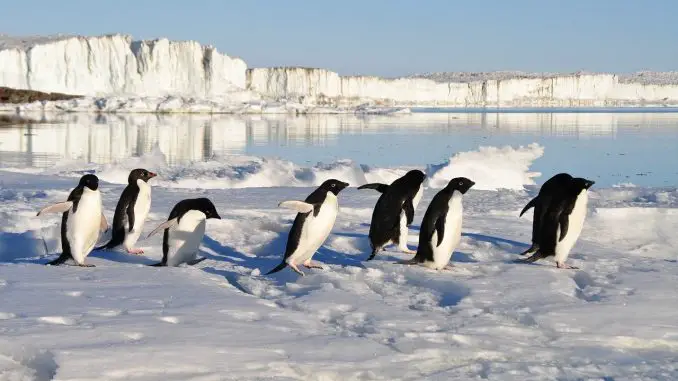
The latest report from the IPCC on the seas and melting ice will be a further addition to a year in which the pressure on increased efforts from politics and business increased ever more. This is according to researchers who follow the UN climate negotiations.
In the UN Climate Panel’s latest report, it becomes clear what consequences we expect in sea and ice-dependent environments if escalating climate change is not curbed. In addition to low-lying countries and inhabited areas will suffer extensive sea-level rises, drinking water supplies are also threatened by melted ice in mountainous areas.
The report is the second special report in just a month from the UN Climate Panel IPCC, and the third in a year. The knowledge situation for the upcoming climate negotiations in Chile this autumn is thus extensive.
Promised raised commitments
However, it is not just a strengthened knowledge situation that puts additional pressure in the political negotiations.
The fact that 66 countries this week announced that they will develop net zero emission targets at the extra convening climate summit in New York also contributes. Add to this that 59 parties, including China, India and the EU, have also promised increased commitments under the Paris Agreement next year.
– For every country that takes on more ambitious commitments, you put pressure on those countries that say nothing and those who stand and falter. And if you think of any kind of external monitoring, it is also true that the more countries that take on a certain type of commitments, the more the actual disadvantages of not following this train, says Mathias Fridahl, who followed the climate talks within the UN Climate Convention UNFCCC for several years.
Fridays for Future
On top of these signs, the Fridays for Future movement’s widespread protests, progress in both the maritime and aviation sectors’ discussions on their climate commitments and new steps taken in the Montreal Protocol also contribute to limiting the use of climate-harmful gases to further increase pressure on those who falter.
– It is moving in a kind of positive direction, which within a few years will hopefully also have a major impact in emissions reduction and actual policy, to everyday university lecturer at the interdisciplinary department TEMA.
IPCC reports have “had good timing”
Although there may not be many new conclusions in the report itself. As the IPCC compiles the overall scientific evidence at the moment in the field, the reports are often said to act as a means of pressure in the climate negotiations.
– It is also true that IPCC has previously had good timing on the reports for major rounds of negotiations between the countries in UN climate cooperation.
The first IPCC report was written, among other things, on the basis of a mandate to extract building blocks for a climate convention. Then there have also been new reports ahead of the Kyoto Protocol’s final negotiations, as well as at the time of agreeing on the mandate for the big negotiations in Copenhagen and ahead of the crucial Paris meeting.
The first IPCC report was written on the basis of a mandate to extract building blocks into one.
– It is said that the reports have given progressive states pushed in the negotiations. This is because they can then say in the negotiations that “We agree on the state of knowledge” and “We have signed this in different IPCC contexts”, then they can say that “We now know that this is serious and now we must act ”. It would probably have been more difficult to do without IPCC, even if it is a counterfactual reasoning.
Saudi Arabia and the United States continued to protest
But the situation can also be the same as in Katowice last year. There, among others, Saudi Arabia and the United States, which did not agree with the conclusions of the report in the IPCC context, continued to protest against the conclusions also in place in the UNFCCC negotiations.
This time, however, the protests should have been less in the light of the information provided by the 104 co-authors within the IPCC. According to the information leaked from the final talks this week in Monaco, where the countries of the world have been commenting on the “summary for decision makers”, it must have been mainly Saudi Arabia who objected to the excessive links between the “sea report” and the two previous reports presented there. last year, namely regarding the land use report and the 1.5-degree report.
“Convenient not to argue about the state of knowledge”
Hopefully, therefore, the political negotiators do not have to devote energy to discussing the state of knowledge at the upcoming climate summits in Chile and Scotland.
– It is practical to not have to argue about the state of knowledge. Should one sit at the climate negotiations and argue about “what climate change is” and “what is dangerous and not dangerous”, the negotiations would have a much easier failure. It is already difficult enough to answer the question “What should we do about the state of knowledge?”.

Leave a Reply